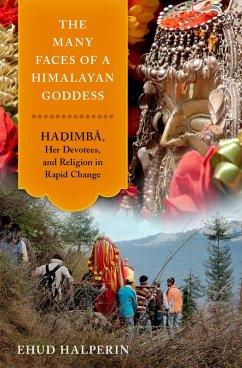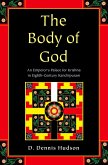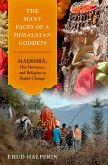Hadimba is a primary village goddess in the Kullu Valley of the West Indian Himalayan state of Himachal Pradesh, a rural area known as the Land of Gods. As the book shows, Hadimba is a goddess whose vitality reveals itself in her devotees' rapidly changing encounters with local and far from local players, powers, and ideas. These include invading royal forces, colonial forms of knowledge, and more recently the onslaught of modernity, capitalism, tourism, and ecological change. Hadimba has provided her worshipers with discursive, ritual, and ideological arenas within which they reflect on, debate, give meaning to, and sometimes resist these changing realities, and she herself has been transformed in the process. Drawing on diverse ethnographic and textual materials gathered in the region from 2009 to 2017,
The Many Faces of a Himalayan Goddess is rich with myths and tales, accounts of dramatic rituals and festivals, and descriptions of everyday life in the celebrated but remote Kullu Valley. The book employs an interdisciplinary approach to tell the story of Hadimba from the ground up, or rather, from the center out, portraying the goddess in varying contexts that radiate outward from her temple to local, regional, national, and indeed global spheres. The result is an important contribution to the study of Indian village goddesses, lived Hinduism, Himalayan Hinduism, and the rapidly growing field of religion and ecology.
Dieser Download kann aus rechtlichen Gründen nur mit Rechnungsadresse in A, B, BG, CY, CZ, D, DK, EW, E, FIN, F, GR, HR, H, IRL, I, LT, L, LR, M, NL, PL, P, R, S, SLO, SK ausgeliefert werden.









